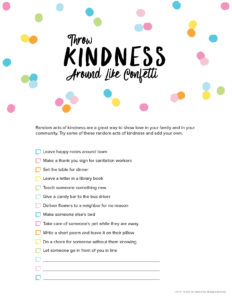Back when recess was the highlight of my kids’ days, a kid we’ll call Jasper had a reputation as a little genius. He did math work for fun. He’d had several poems published locally. And he preferred reading over running on the playground. Man, he was going places. Future valedictorian! Ivy League! We all knew it. But now, years later, I’m not so sure where he’s headed. When I drop off my kids at school, I occasionally spot Jasper, plodding along to class, a two-ton bag stooping his shoulders. And he’s always alone.
If your child’s blessed with smarts, be glad. Not having to struggle in class is truly a gift. But if we put too much emphasis on grades, our kids could end up not only depressed but sorely lacking in other areas. There are 4 things more important than book smarts.
1. Diligence
My friend told me she had to work really hard in school to get good grades. Some classes, like chemistry, didn’t come easily. I said, “Same!” We earned our A’s by studying, raising our hands in class, and not giving up. We want our kids to do that too. Sure, it’s discouraging for a child when he brings home a bad grade or when he doesn’t win the competition. But to build diligence in a child, we have to focus more on the process over the product.
A kid who says “I’ll try again” or simply goes back to the drawing board has diligence. But to get there, you may need to encourage it when you see it by saying, “You’re working hard on this project!” or “I’m glad you met with your teacher after school to go over the homework.”
2. The Ability to Read a Room
How well does your child understand others’ emotions? Being able to read a room means being able to pick up on the nonverbal cues of kids around him. It’s an awareness of others’ feelings and being able to put yourself in someone else’s shoes. These are skills that will help a child connect with people all through their lives. In Lisa Sugarman’s book How to Raise Perfectly Imperfect Kids, she says a kid’s EQ is a lot more important than IQ: “Being book smart is great, but it’s the kid with high emotional intelligence who’s really gonna crush it in life.”
Encourage your child to maintain eye contact because so many feelings can be read through another person’s eyes. If your child is neurodivergent and eye contact is stressful, help him to recognize other nonverbal cues with body language. Also, talk about emotions when you’re with your child: You look frustrated. That woman looks excited. That child in line seems bored.
3. Empathy and Kindness
“I’m sorry I’m late!” my daughter said, a little breathless after school. “I was holding the door for people!” Whoa, I thought. That’s pretty cool. I wanted to encourage more of this type of behavior, so I asked a few more questions. She said she got a few thank yous, but most of all, she felt good after doing a little act of service.
Back when my kids were in elementary school, I thought I needed to focus solely on grades. But as they’ve gotten older, I’ve realized book smarts are just one part of a person’s makeup. I want to raise kids who will offer a kind word or helping hand without prompting. As Sugarman says, “[W]hile being a high academic achiever will definitely open lots of doors for our kids later in life, it won’t ensure those doors stay open.” It’s never too late to make a parenting shift. Even though book smarts are important, it’s the human connection that will most likely make a kid happy in life.
Download our Random Acts of Kindness printable for some ideas about spreading kindness that you and your child could do this week. Celebrate when you complete the list!
4. Relationships
Lately, my son’s had so much homework, and sometimes, he’s tempted to skip marching band practice or one of his club meetings. But my husband and I still encourage him to go. Grades matter, but cultivating friendships and being around other people is just as important. The Penn State Extension program, Better Kid Care, says, “For children, relationships are the foundation upon which everything grows. Their overall development—intellectual, social, emotional, physical, behavioral, and moral—is affected by the relationships they have with others in their lives.”
Having book smarts is great but kids need to develop relationship skills too, especially in our tech-centered culture today. Look for activities where kids won’t be on screens. Talk to you school’s counselor or check out your local paper if you need ideas.
Book smarts are great. But what else should kids learn that doesn’t come from a book?











